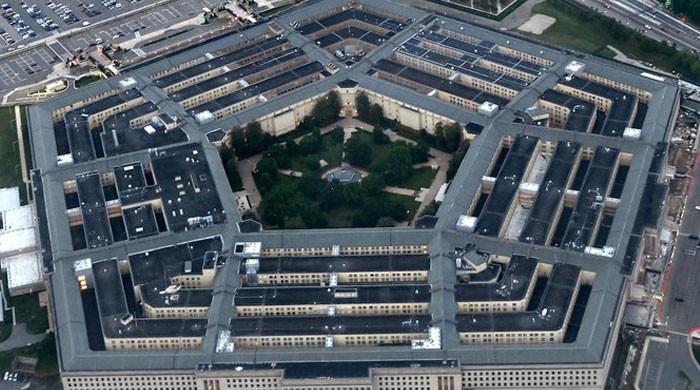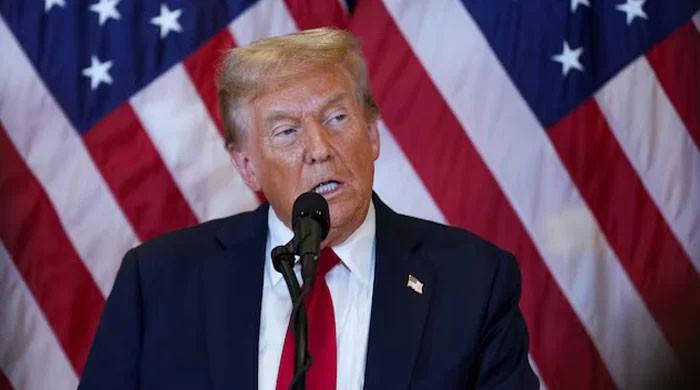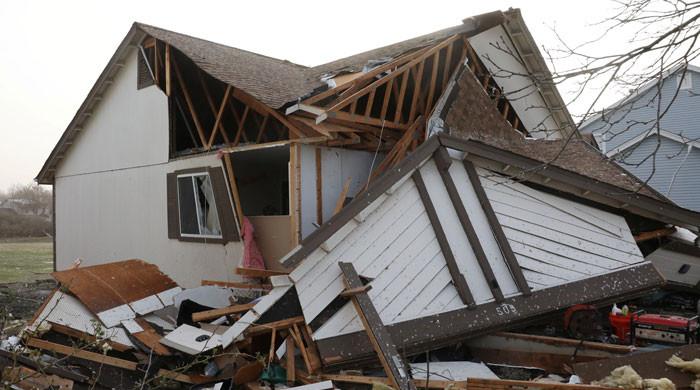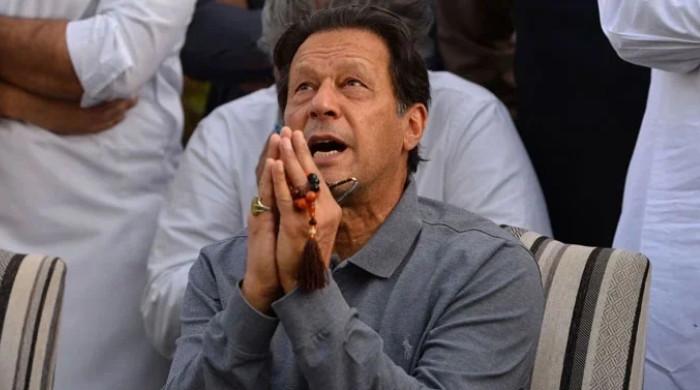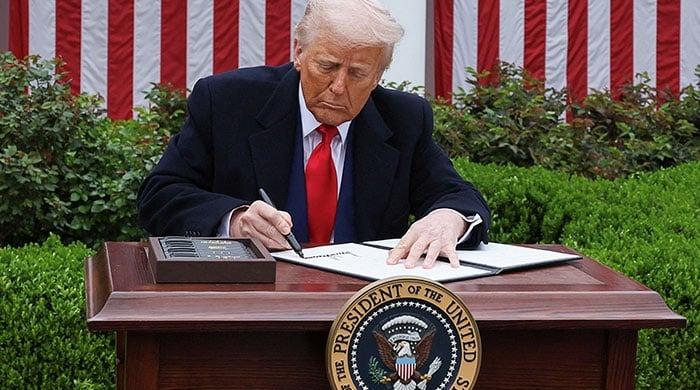How the world sees 'historic' Israel-UAE deal
UAE becomes the third Arab country to establish full diplomatic ties with the Jewish state
August 14, 2020
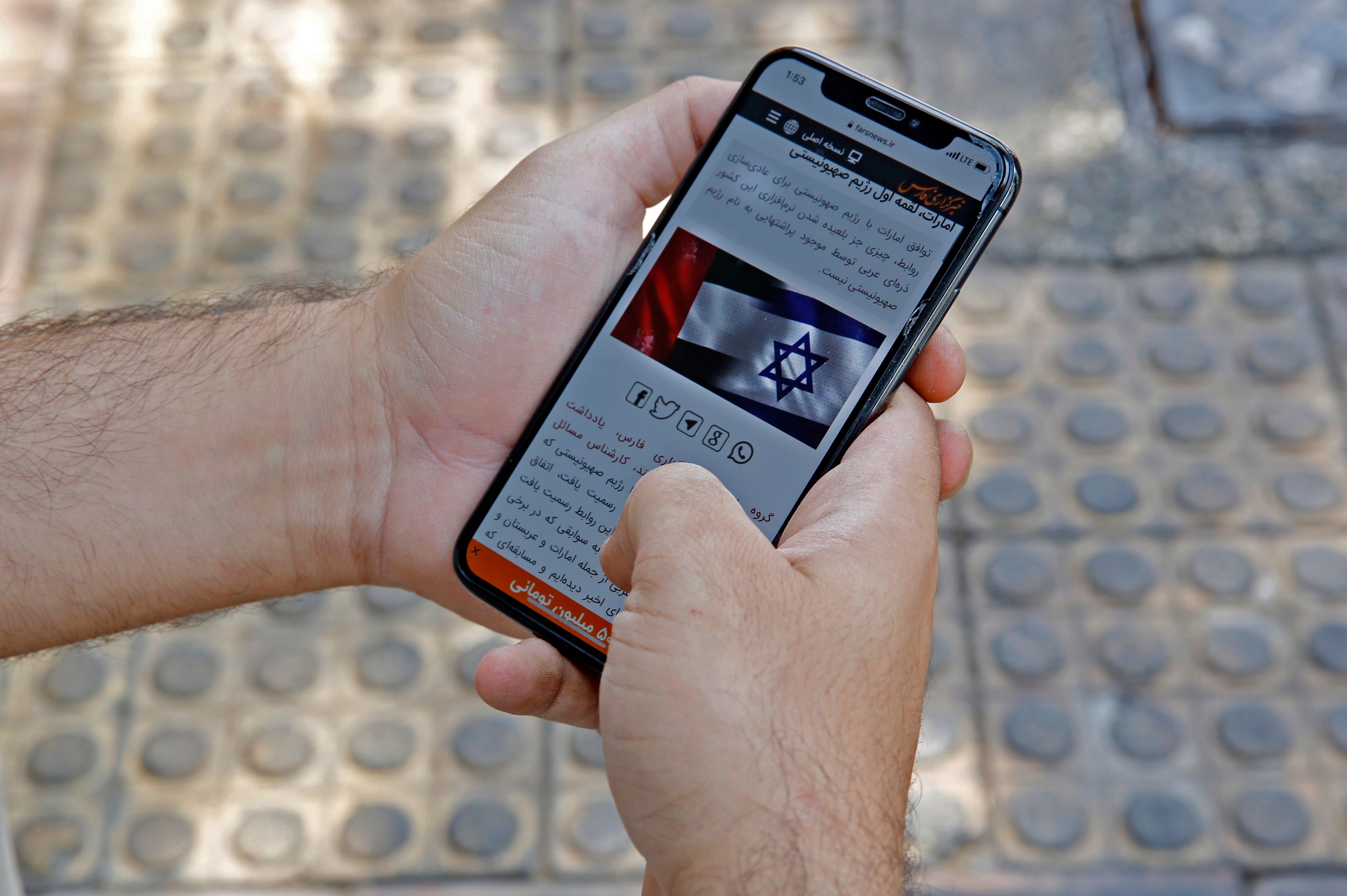
DUBAI: Israel and the UAE have agreed to normalise relations, which makes the Gulf state the third Arab country to establish full diplomatic ties with the Jewish state.
Here is how the world is reacting:
Pakistan
Pakistan said that its approach to the agreement between UAE and Israel will be guided by how Palestinian's rights and aspirations are upheld.
"Pakistan’s approach will be guided by our evaluation of how Palestinians’ rights and aspirations are upheld and how regional peace, security, and stability are preserved," said a statement by the Foreign Office.
It noted that the development has "far-reaching implications".
"Pakistan has an abiding commitment to the full realisation of the legitimate rights of the Palestinian people, including the right to self-determination," the statement highlighted.
It added: "Peace and stability in the Middle East region is also Pakistan’s key priority."
United States
"HUGE breakthrough today! Historic Peace Agreement between our two GREAT friends, Israel and the United Arab Emirates!" US President Donald Trump said on Twitter.
"Everybody said this would be impossible ... After 49 years Israel and the United Arab Emirates will fully normalise their diplomatic relations," Trump later told reporters.
Democratic White House candidate Joe Biden called the UAE´s move "a welcome, brave, and badly-needed act of statesmanship".
United Kingdom
British Prime Minister Boris Johnson welcomed the agreement as "hugely good news".
“The UAE and Israel’s decision to normalise relations is hugely good news,” Johnson said on Twitter.
“It was my profound hope that annexation did not go ahead in the West Bank and today’s agreement to suspend those plans is a welcome step on the road to a more peaceful Middle East.”
Foreign minister Dominic Raab said it was “time for direct talks between the Palestinians and Israel, the only route to lasting peace.”
Palestinians
The Palestinian leadership voiced its "strong rejection and condemnation" of the deal and announced it would withdraw its envoy from the UAE.
Palestinian president Mahmud Abbas called the agreement an "aggression" against the Palestinian people and a "betrayal" of their cause, including their claim to Jerusalem as capital of their future state.
Hazem Qasem, spokesman for Palestinian group Hamas, which controls the Gaza Strip, said the deal "does not serve the Palestinian cause", calling it "a reward for the Israeli occupation and crimes".
Jordan
Jordan, which borders the West Bank and Israel, said the outcome of the agreement would depend on Israel´s actions, including its stance on a two-state solution with the Palestinians.
Foreign Minister Ayman al-Safadi said: "the impact of the deal on peace efforts is linked to the actions Israel will take".
Egypt
"I appreciate the efforts of the architects of this agreement for the prosperity and stability of our region," Egyptian President Abdel Fattah al-Sisi tweeted.
He added he hoped the deal to halt Israel´s annexation of Palestinian land, would help bring "peace" to the Middle East.
Iran
Israel's arch-enemy Iran condemned the deal, saying the Palestinian people would "never forgive the normalising of relations with the criminal Israeli occupation regime and the complicity in its crimes."
The move was an act of "strategic stupidity from Abu Dhabi and Tel Aviv which will undoubtedly strengthen the resistance axis in the region," the foreign ministry said.
Turkey
Ankara also condemned the deal as an act of treachery.
"While betraying the Palestinian cause to serve its narrow interests, the UAE is trying to present this as a kind of act of self-sacrifice for Palestine," the foreign ministry said.
"History and the conscience of the people living in the region will not forget and never forgive this hypocritical behaviour."
Yemen
Yemen's Iran-allied Huthi rebels slammed the deal as "a move that provokes the Arab and Islamic nation... and proves that these countries, including the Emirates which is launching an assault against Yemen, serve the Israeli entity," their spokesman Mohammed Abdelsalam said.
France
France welcomed the deal, stressing the suspension of Israel´s plans to annex swathes of the occupied West Bank.
"The decision taken within this framework by the Israeli authorities to suspend the annexation of Palestinian territories is a positive step, which must become a definitive measure," French Foreign Minister Jean-Yves Le Drian said in a statement.
China
"China is happy to see measures that are helping to ease tensions between countries in the Middle East and promoting regional peace and stability," said foreign ministry spokesman Zhao Lijian.
"We hope relevant parties will take concrete actions to bring the Palestinian issue back to the track of dialogue and negotiation on an equal footing at an early date," Zhao said, reiterating Beijing´s support for an independent Palestinian state.
Germany
Germany welcomed the "historic" deal, with Foreign Minister Heiko Maas saying normalisation of ties between the two countries was "an important contribution to peace in the region."
United Nations
UN chief Antonio Guterres said he hoped the deal would help realise a two-state solution.
"The secretary general (hopes) it will create an opportunity for Israeli and Palestinian leaders to re-engage in meaningful negotiations that will realise a two-state solution in line with relevant UN resolutions, international law and bilateral agreements," his spokesman said.
India
"India has consistently supported peace, stability and development in West Asia, which is its extended neighbourhood. In that context, we welcome the full normalisation of ties between UAE and Israel. Both nations are key strategic partners of India," said the spokesperson of the Ministry of External Affairs of India.
''India continues its traditional support for the Palestinian cause. We hope to see early resumption of direct negotiations to find an acceptable two-state solution,'' he added.





